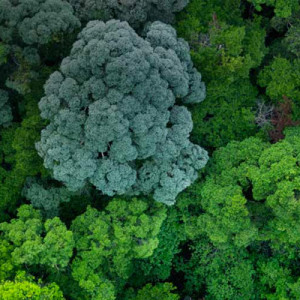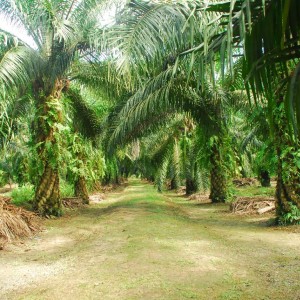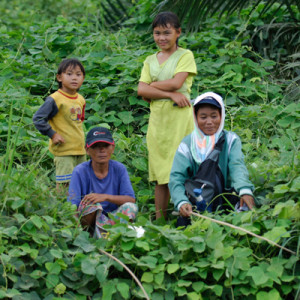Fact-based Promotion for Palm Oil
The well orchestrated and funded anti-palm oil campaigns by NGOs have clearly distorted the facts pertaining to palm oil. As a result, MPOC, the marketing arm of the industry has to often find suitable avenues to establish the facts relating to palm oil by collaborating with various research organizations worldwide that are free to use their findings and disseminate them to the public in any suitable form. It is a standard procedure that these researchers are allowed to publish their findings on palm oil, be it positive or negative.
In the past, most researchers were surprised to uncover many facts which run counter to those they have often heard from the anti-palm oil campaigners. Very seldom have we been alerted on negative findings resulting from their research efforts. The research results seem to annoy the Western NGOs who have found their past statements on palm oil totally exposed as lies and untruths. As expected, instead of debating the value of the message, they have attacked the messengers. Any positive findings on palm oil coming from well renowned researchers risk being attacked by these NGOs.
It is always a bitter pill to swallow when the truth comes back to haunt these dream merchants. For example, the RSPO, which is the brainchild of WWF, may have little to offer the world with regard to mitigation of global warming. The Malaysian oil palm cultivation at 4.85 million hectares is too insignificant as compared to the 4,267 million hectares of agricultural area of the world (mostly in developed countries) to have any positive or negative effect on Green House Gas (GHG) emissions. If the world agricultural land is said to contribute 17 % of the global GHG emissions, then the Malaysian oil palm plantation’s share as an agricultural crop is only 4.85/4267×17% or 0.019%. What about the 99.981 % emission coming from other agricultural areas of the world or the 56% share of fossil fuel in global GHG emission?
Western NGOs want to curb the expansion of oil palm cultivation as they claim it will lead to deforestation and an increase in GHG emissions. In comparison, the airline industry is contributing between 2 to 3 % of global GHG emissions (105 times more than the emission of the Malaysian oil palm industry) but no calls are made to stop the expansion of the industry. These NGOs who claim to support ‘green’ efforts have certainly not volunteered to stop using airplanes in their travels, although they often make big claims of wanting to resolve the GHG emissions problem.
The hypocrisy goes further with WWF supporting the proposed Palm Oil Labeling Bill in the Australian parliament by linking oil palm cultivation to deforestation. As a developing country, Malaysia has utilized part of its land area for agriculture such as for planting oil palm, rubber, rice etc. It is ironic that the NGOs and supporters of the Bill did not point out that Australia, a developed country with a lower population than Malaysia, has been deforesting at 3 to 5 times more than the rate in Malaysia over the last ten years.
Instead, the negative portrayal and allegations of deforestation by oil palm plantations were effectively used by the NGOs to solicit donations through TV advertisements to save the orang utans, which is clearly a misuse of public funds as none of the money is channeled to the actual cause. The orang utans are well looked after by our authorities as these animals are part of the country’s tourism attraction. Almost 100 % of palm oil imported by Australia comes from Malaysia, a country which is proud of its efforts in retaining 56 % of permanent forest cover compared to only 19 % for Australia or even lower for many other developed nations. Why then should the insinuations about deforestation or misuse of public funds be leveled at Malaysia when the Australian environmental NGOs and their cronies such as their Zoos should realize that Australia is a far more appropriate target for implementing their no deforestation and discriminatory agricultural product labeling campaigns.
It therefore comes as no surprise that the Indonesian Palm Oil Producers Association, (GAPKI), in withdrawing their membership of RSPO, have realized that investment in the scheme has failed to yield the desired rate of return or provide any significant impact in reducing global GHG emissions. There is no valid reason for them to continue to invest in the RSPO as producers have incurred an additional burden of cost without any significant return.
Although having incurred millions of Ringgit in costs to implement the RSPO scheme, Malaysian palm oil producers have realized that not much of the 0.019% of global GHG emissions can be mitigated, nor much of an increase in future global temperature can be prevented. Although sustainability efforts promoted via RSPO are encouraged, should the benefits in preventing global warming are unquantifiable and insignificant, it will result in a misuse of public funds. For example, millions of Ringgit are spent to fly in teams of RSPO auditors and certifiers to certify oil palm plantations, knowing that the effort has little bearing to mitigate global warming. Instead, this money can be wisely spent on R & D or training and educating smallholders where returns can be easily translated into a better standard of living .
Despite the cooperation and collaboration by the palm oil producers to embrace the NGO initiated RSPO scheme, Western NGOs continue their relentless and brutal attack on the palm oil industry instead of consolidating their support to help RSPO to succeed. As a result, more hard earned industry money and government funds have to be deployed to correct the misinformation and lies spread by these NGOs. As the oil palm sector is an important revenue earner for the country which provides job opportunities for the rural sector thereby eradicating poverty, the industry must be supported through appropriate funding to ensure unimpeded access to the world export market.
The irony is that other oils and fats produced in developed countries which cause 10 to 20 times more deforestation than that of oil palm plantations in Malaysia are not required to be certified sustainable. For example, farmers in the US, Canada and the EU are unaware if their oil seeds are sustainably produced as their oils are automatically accepted as sustainable raw material for biofuel by their governments. This is due to their governments having declared that on an aggregative reasoning , farmers are not involved in deforestation in recent years and therefore their oils and fats are assumed sustainable.
In contrast, oil palm farmers are required to individually show proof that they have not been involved in deforestation . For these farmers, to qualify and obtain sustainability certification, they are required to maintain about 130 files as indicators of good practices. These double standards and brutal hypocrisy regimes will continue to be defended by the Western NGOs at the RSPO annual meeting. I will unfortunately miss the opportunity to be present at the meeting as I have decided that my non-presence there will help to save public funds in view of the narrow objectives, negligible benefits , and insignificant GHG emission and global warming mitigation potential to be discussed or derived from the meeting.
The palm oil industry plays an important role in providing food security and has long been an acceptable and affordable food source to the majority of the world population. Even doubling the oil palm cultivated area in Malaysia would not have any significant addition to global GHG emissions but it would significantly provide an additional 25 % increase in supply of edible oil for the world market. As palm oil is clearly proving to be the only source of supply for those countries with a net import need for edible oils, it makes a lot of sense to increase the supply of palm oil for meeting food security needs of the world.
It’s high time NGO’s take a long view of palm oil’s ability to eradicate poverty and provide an affordable food source to countries that struggle to remain out of poverty and provide a decent income to smallholders which will eventually raise their standard of living. And this is something we can all agree is money well spent for social and human development!










Dear Sir,
First off, let me compliment you and your team for trying your best to counter the designs of the western market & political forces; to them, all is fair in love, war and business, unlike Asians who intrinsically believe in the philosophy of live and let live.
I feel you need a 2-pronged strategy to counter the western offensive:
(i) Mobilize your technical counters to their points and communicate them in the most effective and telling way possible. This cannot be a mere technical counter, but a powerful marketing communication. For example, westerners say palm oil hurts the heart. Show statistics to prove that, other things being equal, % of population that consumes palm oil doesn’t die/ suffer significantly more than the others due to heart diseases. Develop a mathematical model to prove that palm oil as an alternative source of energy is not worse than its competition.
(ii) It is economically feasible to use the power of internet and social media to flood the net with counters so that, when someone searches for palm/ olive/ cooking oil, your points of view (as above) show up in the first page substantially. This is easier than one would imagine.
Please contact me through email if you need help. I have enough to say.
All the best,
Ganesan.